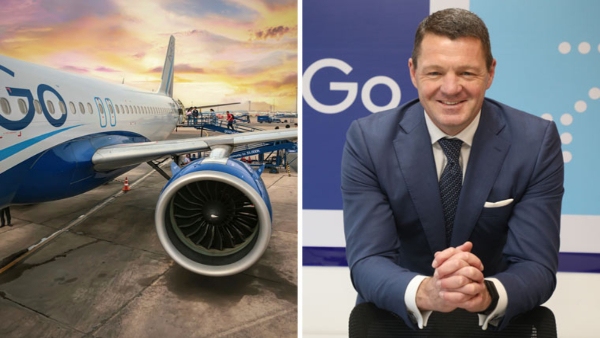IndiGo’s CEO Pieter Elbers acknowledges the ongoing aircraft grounding due to engine supply chain constraints as a sad reality but remains optimistic about capacity guidance. He defends India’s selective bilateral air traffic rights policy as fair and balanced, disputing foreign carriers' claims of unfair restrictions, and indicates potential interim solutions ahead of Airbus widebody deliveries.
IndiGo CEO Pieter Elbers has candidly addressed key challenges facing India’s largest airline, emphasizing the impact of Pratt & Whitney engine issues on the grounding of roughly 20% of IndiGo’s fleet. He described this situation as a “sad reality of supply chain right now,” reflecting global component shortages affecting aviation. While offering no precise timeline on when the grounding crisis will fully resolve, Elbers notes that the airline is committed to meeting its capacity guidance and exploring intermediate operational solutions until its Airbus widebody aircraft arrive.
On the matter of international air traffic rights, Elbers firmly defended India’s stance, clarifying that the perception of India denying traffic rights to foreign carriers is incorrect. He stated that India’s bilateral agreements are selective but fair and balanced, focusing on mutual benefit and the utilization of existing rights before expansion. Elbers dismissed the notion that louder lobbying by some foreign airlines, particularly Gulf carriers, equates to justified demands, underscoring the bilateral nature of such agreements.
India's approach aims to strengthen its carriers’ competitiveness by ensuring reciprocal access while maintaining a strategic, measured expansion of international routes. Elbers’ balanced viewpoint comes amid ongoing debates over aviation market access and bilateral negotiations, coinciding with India's ambitions to become a global aviation hub despite current operational hurdles.
Key Highlights:
-
IndiGo faces aircraft grounding due to Pratt & Whitney engine supply chain issues.
-
CEO Elbers calls this grounding a “sad reality” but promises capacity guidance fulfillment.
-
No specific forecast on when groundings will end; intermediate solutions likely before Airbus widebodies arrive.
-
India’s bilateral air traffic rights policy described as “fair and balanced” by IndiGo CEO.
-
Claims that India denies foreign carriers traffic rights are inaccurate, per Elbers.
-
Bilateral agreements focus on mutual benefit and full utilization of existing rights.
-
Foreign carriers’ louder demands do not equate to correctness in bilateral talks.
India's aviation strategy supports reciprocal access and strengthens Indian carriers globally.
Sources: Reuters, Economic Times, Indian Express, Mathrubhumi News, Bloomberg, Financial Express
